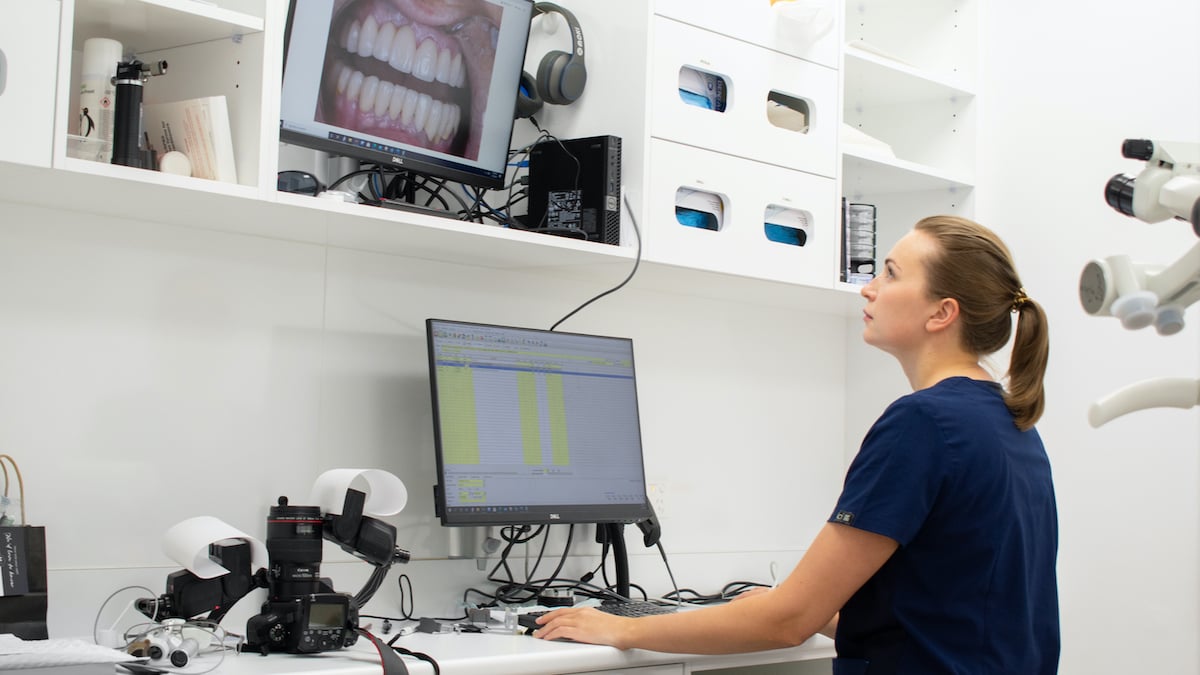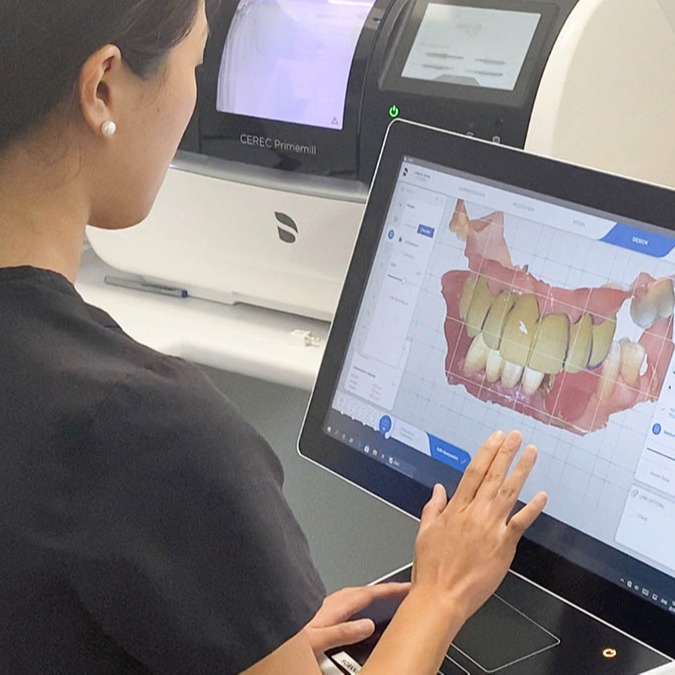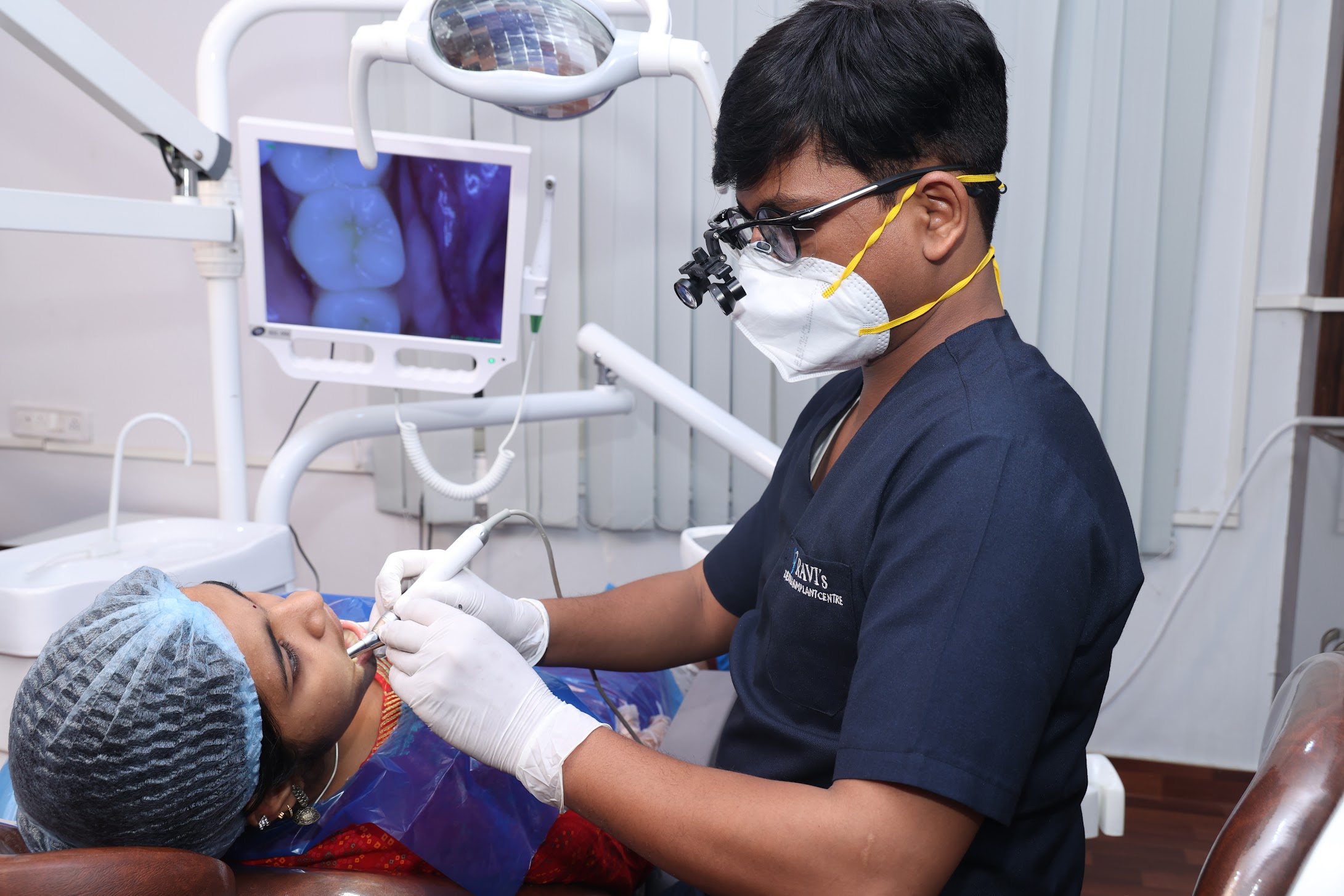Periodontal disease is a major concern that can worry your patients and put their oral health at risk. In fact, the National Institute of Dental and Craniofacial Research (NIDCR) reports that in the United States, “2 in 5 adults are affected by some form of this disease.”
There will likely be patients who need more than just a deep cleaning to repair damaged tissue or missing teeth due to periodontal disease. Here, we’ll discuss treatment options and how advanced periodontics and implantology continuing education can give you the knowledge to tackle any case.
What Is Periodontal Disease?
As an infection of the gum, periodontal disease — also called periodontitis — can damage the surrounding bones and may require surgical treatment if not cared for promptly . To best treat all stages of gum disease, a dentist should have:
-
Advanced cleaning and scaling skills.
-
Accurate measuring techniques.
-
Excellent doctor-to-patient communication skills.
-
Periodontal surgery experience.
Without an expanded skill set, it can be challenging to provide the best care for your patients. However, it can be difficult to get enough practice and guidance while in dental school — especially when it comes to the less common needs of patients who have suffered soft tissue and bone damage.
Advanced Periodontics and Implantology
The discipline of periodontics requires an experienced hand and trained eye to confidently provide surgical treatment options for treating advanced gum disease and other conditions affecting the gums.
Prevention and Treatment Plans for Periodontal Disease
Although general dentists are typically proficient in routine cleanings, they often refer patients with gum line inflammation and deep pockets around the teeth to periodontists. Advanced periodontal disease may require challenging procedures such as soft tissue grafts, bone grafting, and pocket reduction surgery. Additionally, if the gum disease has caused tooth loss, dental implants may be necessary.
Providing the best periodontitis treatment plan for your patients should mean you have the skills and experience necessary to carry out that plan. This can come with continuing education courses that explore the challenges of advanced periodontics and implantology. To stay on your career path, you need courses that can give you CE and CPD credits while also enhancing your surgical and diagnostic skills.
Online Periodontal CE Courses
Before the significant advancement of technology in the industry, in-person dental CE courses were the only option. These courses are still available, but they can be costly and time-consuming.
There are now revolutionary virtual courses that you can take from the comfort of your own home or dental practice. Many dental education providers offer a wide variety of classes including periodontal CE courses that use the latest in simulation tech to give you the hands-on practice you need to build your experience and your skill set.
Online continuing dental education providers offer a variety of class types including:
-
Individual classes that focus on a specific topic.
-
Fellowships that offer a two-year dive into a dental discipline.
-
On-demand and free learning opportunities.
-
Fast-track partnership programs.
To get the most out of these online classes, look for online options that are taught by world-class master dentists who can give you one-on-one communication and support. To further your learning experience, look for a supportive dental community of like-minded individuals who work together to further their educational and professional goals.
Continuing Education Can Help You Master Periodontics Dentistry
Although gum disease prevention and gum care are key, there is more to providing quality care for your patients. Understanding gum disease and mastering treatment options can keep your patients smiling. Advanced periodontics and implantology online courses offer the opportunity to hone your skills and learn new techniques to better serve your patients. Explore your potential — Learn More About Periodontics.





